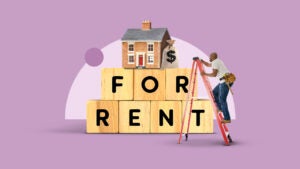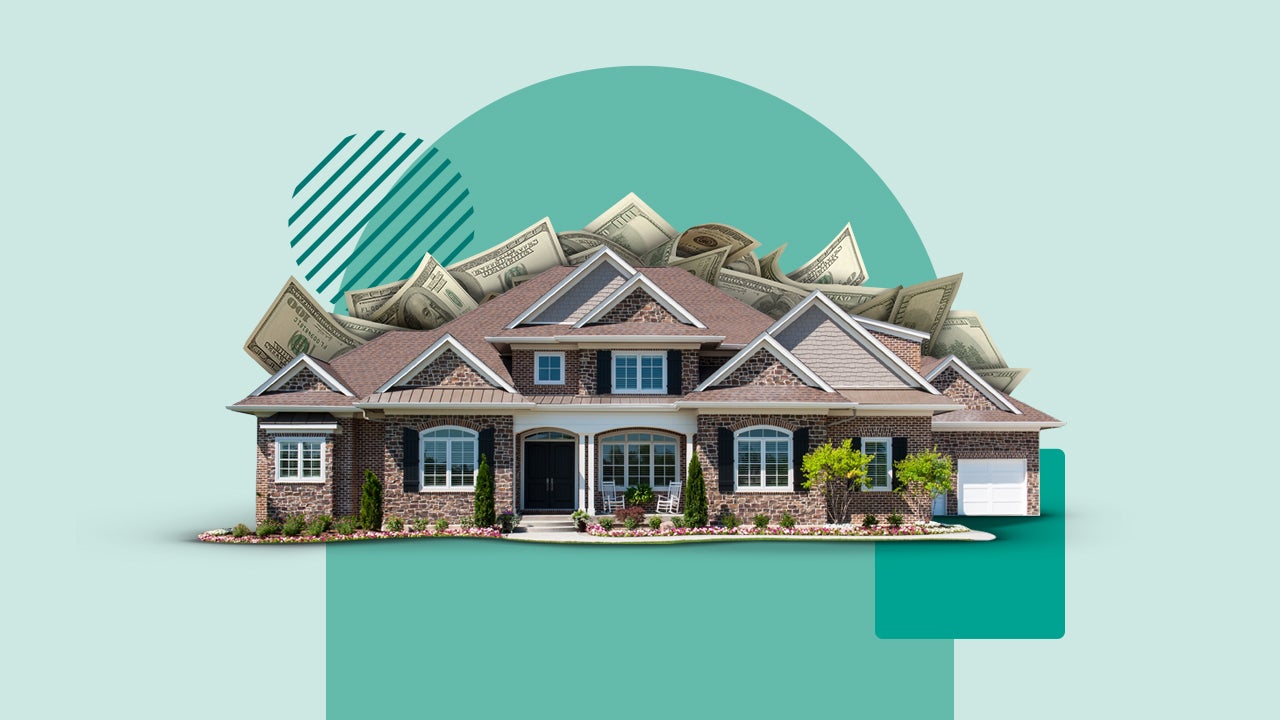What income do I need to afford a $300K house?

With the national median home price above $400,000, according to the National Association of Realtors, $300,000 is a common price point for buyers looking to make the jump from renting to owning. How much you need to make to afford a $300K purchase depends on a number of factors beyond just annual salary, though.
Bankrate’s mortgage calculator can help you figure out the income needed to afford a $300K house. Assuming a 20 percent down payment and a 6.5 percent interest rate on a 30-year loan, the monthly principal and interest payment on a purchase of this amount would be $1,516. These costs alone would total $18,192 annually. Other components of your monthly payment, such as property taxes, insurance and homeowners association fees, vary by location and add to your total bill. Let’s round the monthly payment up to an even $2,000 per month to account for those, which brings us to an annual total of $24,000.
One common financial rule of thumb recommends that you spend no more than about a third of your income on housing costs (see more on the 28/36 rule below). So, to estimate the salary you’ll need to comfortably afford a $300,000 home purchase, multiply the annual total of $24,000 by three. That leaves us with a recommended income of $72,000. (Keep in mind that this does not include a down payment or closing costs.)
Income to afford a $300K house
Every borrower’s situation is different, but many lenders adhere to the 28/36 rule when evaluating applicants. This specifies that no more than 28 percent of your gross income should be spent on your monthly housing payment, and no more than 36 percent on total debt payments, including housing.
Let’s see how the 28/36 rule applies to a $72,000 salary. Dividing by 12, this sum equates to $6,000 monthly. Multiply that by 0.28 to get 28 percent, and you get $1,680. This figure represents the maximum recommended housing payment for your income level, including principal, interest, property taxes, home insurance premiums and any applicable HOA fees.
Don’t forget about the 36 percent part of the equation. Take stock of your monthly debts besides housing costs, including car payments, credit card bills and student loans, and ensure that the sum doesn’t exceed 36 percent of your income. You want to make sure you can afford life’s basic essentials after your monthly debt obligations are paid. You should also account for the ongoing costs of homeownership, like maintenance and upkeep.
On a $300K budget, highly expensive areas like New York and San Francisco are probably out of reach. But there are plenty of cities and metro areas where $300K will give you a lot to work with: For example, per Redfin data, the median home prices in Indianapolis, Memphis, Philadelphia and San Antonio are all under $300,000.
What factors determine how much you can afford?
When figuring out how much house you can afford, your income and the home’s asking price are the biggest factors. But there are other important factors to consider as well, including the following:
- Down payment: First and foremost is how much you can put toward your down payment, an upfront cash outlay that most mortgages require. The larger your down payment, the less you’ll have to borrow, and so the lower your monthly payment will be. This sum is expressed as a percentage of the home’s purchase price, and 20 percent is traditional. On a $300,000 property, that would be $60K — an intimidating sum for many, but help is often available.
- Financing options: Many types of loans can actually be had with much less than a 20 percent down payment. If you qualify, a conventional loan may require only 3 percent down, which is a much more manageable $9,000, and if you’re a military service member or veteran, you may be eligible for a zero-down VA loan. Shop around to find the mortgage loan that best suits your needs.
- Credit score: No matter which type of mortgage you choose, your credit score is a crucial factor in determining how expensive of a home you can afford. The higher your score, the lower interest rates you’ll qualify for, which can result in significant savings.
- Debt-to-income ratio: DTI is the sum of your monthly debt payments divided by your gross monthly income. Lenders use it to determine how much you can afford to borrow. The lower your DTI, the easier it will be for you to get approved for a loan.
- Loan-to-value ratio: Your loan-to-value ratio is the amount you’re borrowing in relation to the value of your property, another key factor that lenders consider when evaluating your mortgage application.
Stay the course until you actually close
After you go into contract on your home purchase, closing can take several more weeks, or even longer. During that time, stay vigilant about the factors above. It’s especially important not to do anything that could lower your credit score — avoid big-ticket purchases that require financing (like a car), and don’t apply for new credit cards. If you’re planning big life changes, like switching jobs or getting married, hold off until you’ve closed on the deal if possible.
To ensure a smooth homebuying experience, seek out a local real estate agent who knows the ins and outs of your area. An agent can help you find properties that meet both your needs and your budget, and can guide you through the entire process with professional expertise.
FAQs
-
According to Bankrate’s mortgage calculator, the monthly principal and interest payment on a $300,000 purchase would be $1,516, assuming a 20 percent down payment and a 6.5 percent interest rate on a 30-year loan. Round that up to around $2,000 a month to account for variables like home insurance premiums and property taxes, and that comes to $24,000 per year. Following the 28/36 rule, you should make roughly triple that amount to comfortably afford the home, which is $72,000 annually. Keep in mind that these calculations do not include the cash you’ll need for a down payment and closing costs. So a $300K home on a $70K salary might be possible, but would likely be a bit of a stretch.
-
Your monthly payment is determined by several factors, including your down payment and your interest rate. If we assume a 20 percent down payment and a 6.5 percent interest rate on a 30-year loan, the monthly principal and interest payments on a $300,000 purchase would be $1,516. But that amount will go up if you put down less of a down payment or get a less favorable interest rate, and you’ll need to include fees like property taxes and home insurance premiums as well, which vary based on location and home size.
Why we ask for feedback Your feedback helps us improve our content and services. It takes less than a minute to complete.
Your responses are anonymous and will only be used for improving our website.






